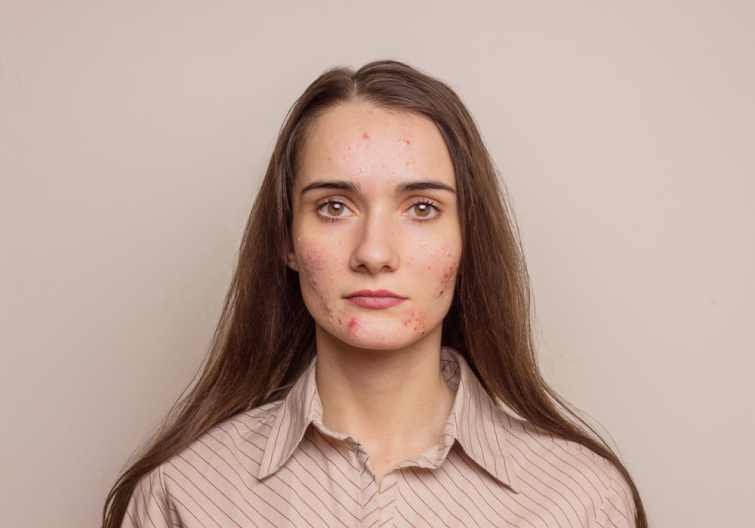
What is acne? Why is it common during pregnancy? Can it be that severe while one is and what can be done to treat and prevent acne during pregnancy? Learn more about the causes and how to deal with acne while pregnant as well as unsafe treatment to avoid.

Before we proceed, I want us to have an understanding of what acne is. Well, it refers to a chronic, inflammatory skin condition that leads to blackheads, whiteheads, cysts, nodules, and pimples.
It occurs when the sebum (a natural skin oil), dead skin cells and hair form a plug in the follicles. When this plug gets infected by bacteria, the follicles will then swell leading forming a pimple.
Acne commonly appears on the face, back, shoulder, breast among other body areas that hair follicles. They are usually mild but can also be severe on some occasions. Risk factors for this condition include the following:
This factors can aggravate the already existing cases or even trigger new ones.
Enough overview let us get on our topic. Why is acne common during pregnancy, or what is the connection between the two?
Many medical studies have come up with the conclusion this is a prevalent disorder in expected mothers. As WebMD notes, “acne is common during pregnancy. More than one out of every two pregnant women can expect to develop acne.” Now, why is this so?
Besides all the risk factors for developing acne that already highlighted above, the primary cause during pregnancy is the rise in the level of hormone androgen or others hormones such as estrogen, progesterone, and testosterone, something that occurs during the first trimester.
When the level of this hormone increases, the production of sebum will also surge and thus increase the chances of the blockage of the hair follicle pores.
Although it is widespread during pregnancy, it is not a guarantee that every expectant woman will get it. However, almost 50 percent usually do.
Another significant point worth mentioning is that acne can occur anytime during pregnancy, it can come and go or persist during the entire period.
Let us look at some signs and symptoms to expect before we look at safe treatments skin condition.
Usually, it has many symptoms. Therefore, we are going to touch on the most common symptoms.
Symptoms of acne while pregnant include unsightly skin bumps or pimples on the face, back, shoulder or breast. Sometimes you will find the victims avoiding public places because they get embarrassed about the appearance of such bumps. Other common symptoms include:
These are just but a few of the symptoms. Now we should tackle insight treating these zits that will be safe to your unborn baby.
First, we must acknowledge that controlling acne during pregnancy is not a straightforward affair. You must avoid all options that have serious side effects or congenital disabilities. This is why treating pregnancy acne is even trickier.
Therefore, avoid prescription or over the counter acne treatments to some levels. Consult your doctor before you try any OTC acne treatments. What we recommend are the drug-free home remedies.
Some treatments may be risky and lead birth side effects. They can also aggravate the already existing one or trigger new ones. Here are some of the treatments we consider unsafe when you are expecting a baby.
These are treatments that can lead to congenital disabilities.
Besides the above unsafe treatments, some medical experts also don’t allow the use of topical acne treatments containing salicylic acid though, detailed study about topical therapies and pregnancy acne is not clear yet.
Usually, it will resolve on their own when the levels of androgen hormone get back to the optimum level. So after childbirth, the condition will be gone. The best solution for acne while pregnant is proper skincare. Here are the useful treatments suitable and safe for the mother and unborn baby. They do not involve any drug.
Some of the symptoms such as itching, inflammation or burning sensation may be relieved by home pregnancy acne products such as aloe vera, coconut oil, honey, oatmeal, cucumber, lavender oils, olive oils, egg yolks, and so on.
Mild over the counter treatments such as erythromycin or azelaic acid, benzoyl peroxide or glycolic acid may also form pregnancy safe face wash for acne. However, consult your doctor before using them.
Acne while pregnant is a common problem that has mild, moderate or severe symptoms. It is majorly due to the rise in levels of some hormones which is common during this time and during puberty, but again certain foods, stress, and medications can trigger breakouts during pregnancies.
So, besides embracing the drug-free treatments, if the symptoms may persist, seek the help of your skin doctor treatment.
Remember if the untreated acne can cause complications such as scarring, or spread the infections leading to severe case symptoms such as large cyst or nodules.